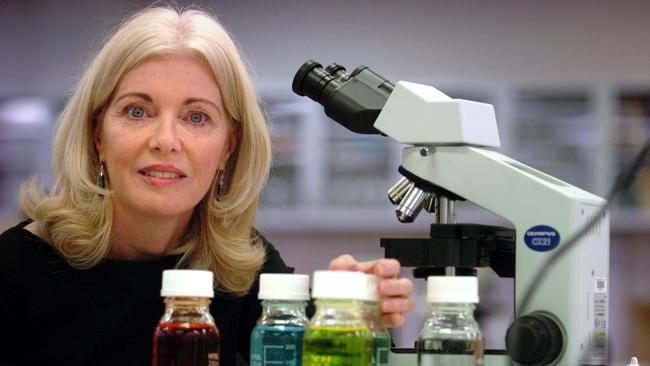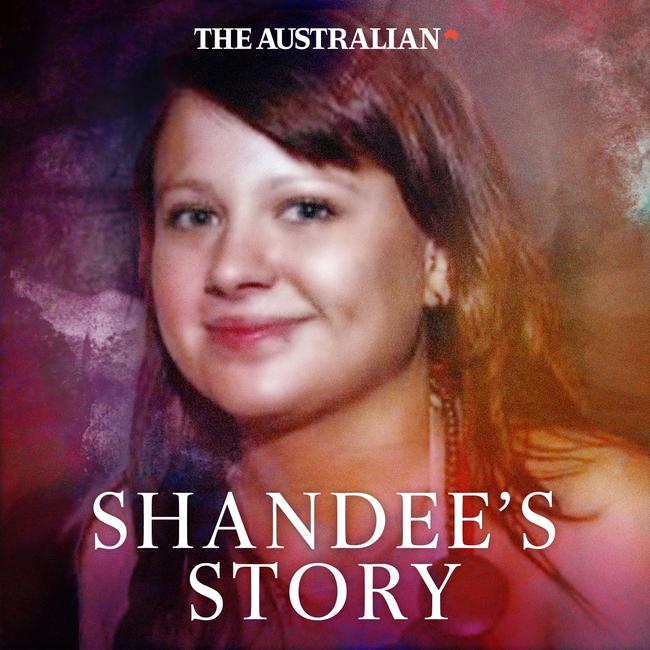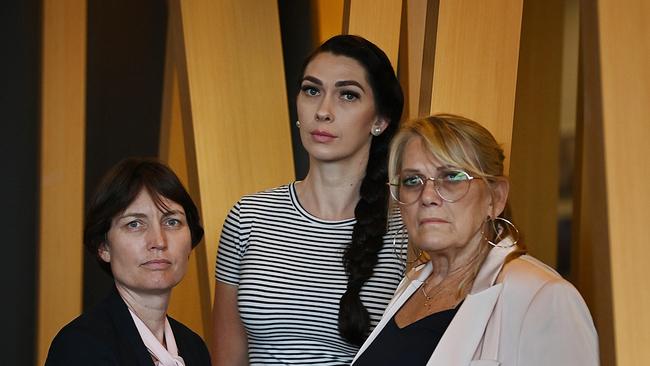Shandee’s Story: Expert’s calls to overhaul state’s DNA lab ‘fell on deaf ears’
A pioneer of Australian DNA testing has revealed the serious and systemic failures she saw at Queensland’s government-run laboratory, and called for an independent inquiry.

A pioneer of Australian DNA testing has revealed the serious and systemic failures she saw at Queensland’s government-run laboratory, and called for an independent inquiry involving international experts.
Speaking from the US on Tuesday, Professor Angela van Daal told of her significant concerns about the lab’s handling of cases spanning almost two decades.
Dr van Daal said she raised the concerns with the lab’s then-director, offering her expertise to fix the problems, and was stunned when nothing appeared to be done.

In one instance in 2004, the lab found no DNA in a vaginal sample taken in a rape case, she said. At a minimum, it should have contained the alleged victim’s DNA.
“I’ve reviewed a fairly significant number of cases around Australia and here in the US, and I can’t recall another case where I’ve come across that problem,” she said.
“There needs to be a significant review of the practices of the laboratory, the training, the quality of the work that’s being produced.
“It needs to be done by probably people outside of the Australian forensic environment – it’s quite an incestuous environment.”
She was speaking for an upcoming episode of Shandee’s Story, the investigative podcast series trying to establish why the vicious stabbing murder of 23-year-old Shandee Blackburn in Queensland in February 2013 remains unsolved.
Dr van Daal said the major problems in the lab had continued when she was reviewing cases around 2013 when Blackburn was attacked just 100m from her home in Mackay.
Forensic scientist Kirsty Wright has discovered during investigations for the podcast with The Australian’s Hedley Thomas a litany of serious errors and problems in the lab may have allowed Blackburn’s killer to evade justice.
These include the lab being unable to detect DNA in a fresh pool of blood, or trace DNA of the main suspect in his own car, or any DNA from a sample from Blackburn’s forearm that should have contained many hundreds of her own skin cells.

Blackburn’s family and Dr Wright want urgent retesting of the forensic evidence in a new facility, and an independent inquiry into the Queensland lab – calls the Palaszczuk government has so far resisted.
Professor van Daal has a long and distinguished career in forensics that includes helping to formulate quality standards for DNA testing in Australian labs. She was an accredited laboratory inspector for the National Association of Testing Authorities, and from 2005 to 2012 was Professor of Forensic Science at Bond University.
She is currently a research scientist at the University of North Texas Health Science Centre, working with leading forensic biologist Professor Bruce Budowle.

Dr van Daal said her own history of reviewing cases for the Queensland Health laboratory, and the concerns of Dr Wright, who she knows and respects, “combined would ring alarm bells for me”.
She suspects the major problems in the lab over almost two decades are all related.
“There was a period where they were getting no DNA quantitation results at all. And this seemed to spread over a period of a year or so. And nothing seemed to be done about it,” Dr van Daal said.
“There were other issues where they seemed to be drawing conclusions from the evidence that were not warranted.
“My concerns were so serious that I organised to meet with the (then) director of the forensic laboratory. And I met with him to raise those concerns. He seemed receptive at the time. I offered to assist in any way I could, with training and education of the lab scientist or whatever it was that they felt they needed, but nothing ever happened and nothing seemed to change.”
Dr van Daal said in the 2004 rape case that she reviewed, a vaginal sample was taken that in all such cases should yield a lot of DNA from the woman, and sometimes the DNA of the alleged offender – yet the Queensland lab had not been able to detect any DNA at all from the swab.
If it couldn’t find the woman’s DNA, there was almost no chance it could have detected the alleged offender’s DNA.
She raised the issue in a 2004 case review report that was tendered in the Queensland courts in the case. “I was quite surprised that nothing was done, or seemed to be done, to rectify the situation,” she said. “Something significant was not working in the laboratory and it should have been investigated.”
Dr van Daal said the lab was also having problems interpreting DNA profiles where there was DNA of more than one person. “That does have a history of being problematic in other labs,” she said. “There are several laboratories in the US that have been shut down as a result of their incorrect interpretations on these mixture DNA samples.”
Incorrect lab results must be investigated, she said.
Anyone with information about the murder of Shandee Blackburn can contact Hedley Thomas confidentially at shandee@theaustralian.com.au




